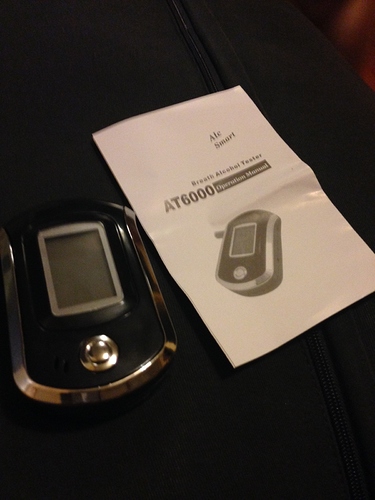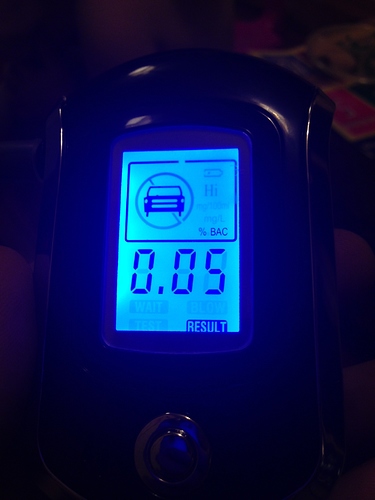I’ve wanted a ketonix for a while but am not going to fork over hundreds of dollars. So I followed some advice and got myself a cheap breathalyzer on ebay. Apparently they don’t distinguish between alcohol and acetone.
IT WORKS!
Now I can measure easily whether or not I am in ketosis anytime I suspect I may have dropped out. The ketostix stopped working for me a long time ago as my body is very well adapted and I don’t excrete a lot of measurable ketones.The breathalyzer is not much good for finding your millimoler value of ketones, but then again, by all accounts neither is a ketonix itself. The breathalyzer cost me $12 and you can get them cheaper. In fact, it’s only the cheaper ones that work. You can get these breathalyzers as cheap as a few dollars.
Here’s the one I used below
That reading above is while fully sober… * I swear * Only trouble is it beeps like crazy when it detects 0.05% or over (the legal alcohol driving limit in australia).  I’m sure other models wouldn’t beep.
I’m sure other models wouldn’t beep.


